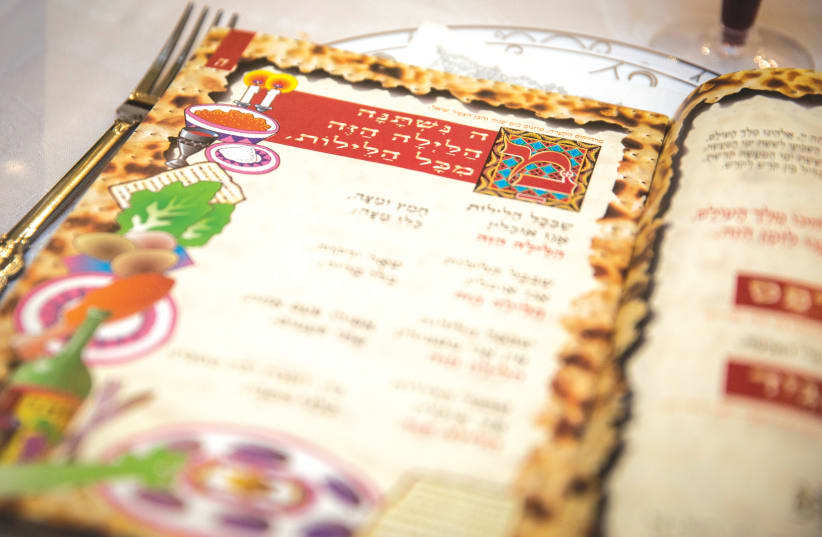The understanding is that as remarkable as the Exodus was and how central it is to our national existence, we cannot suffice to only speak of the freedoms and hope it represents. As a people, particularly on the night we remember this incredible moment, we cannot forget the challenges and tragedies that have defined us and chased us throughout history. We reflect on the fact that we were somewhere else completely and tonight we are a new and free people.
Over the centuries, the sages have dedicated significant discussion to the question of what exactly is this “despair” that we should be focusing on. Should we isolate our attention to the physical despair as slaves in Egypt or are we talking about a more spiritual representation when we were in the hands of idol worshipers?
When asking this question, one can legitimately ask: What’s the difference? What is it about looking back at past challenges that is so central to the story? Do we really need to focus on hardship – whether physical or spiritual – to be able to give thanks to God for leading us to redemption? Is it not enough just to tell the story of how we were led out of Egypt and all the wonders that took place during that time?
The sages offer several possible answers. Most essentially, human nature makes it such that in order to truly appreciate the light, we must first be exposed to the darkness.
Others say that telling the story of the despair and challenge is evidence of God’s masterful plan in our history and our existence.
However, I believe perhaps the most poignant explanation was written around 100 years ago by Jerusalem’s Chief Rabbi Abraham Issac Kook, who explained that, particularly on this night, we need to appreciate that despair builds within us – as individuals and as a people – a critical tool with which to be able to offer praise.
Without being slaves and all that it entailed, we would likely have never understood the value of what it means to be a people guided by order and discipline. Perhaps we would have never come together as a nation and would have fallen victims to the travails of anarchy and lawlessness that befell so many other ancient peoples.
Without being taken out from the spiritual abyss surrounding us in Egypt and being led to the spiritual high at Mount Sinai, we would have been deprived of many of the core ideals which define how we relate to God. The story of the Exodus from Egypt is as much a spiritual as it is a physical exodus, and outlined how we as men and women relate to service of God. It is not simply a philosophical connection to heaven but one that is inspired by that national history and spiritual path.
That sense of “departure from despair” is what allows us to give praise. In many ways these ideals are no less relevant today than they were thousands of years ago. If we look back just 12 months, we all know that we have traveled a very long and often challenging path. There were many moments of despair that allow us to be that much more thankful for the fact that Hashem sent us people infused with the intelligence and skill to build the vaccines that we pray will help leave today’s plague behind us.
But the underlying educational message that Rabbi Kook was teaching us is that we have a personal obligation to seek out the existence of despair and challenge, and ask what those experiences intended to teach us. Nothing in our lives is absent of meaning, and it is our responsibility, as individuals, as teachers and certainly as parents, to look at those moments of difficulty and learn how they will make us better people, to give God praise for what we have and for what we pray we will have in the future.
Rabbi David Stav is the chair and founder of the Tzohar rabbinical organization in Israel.
